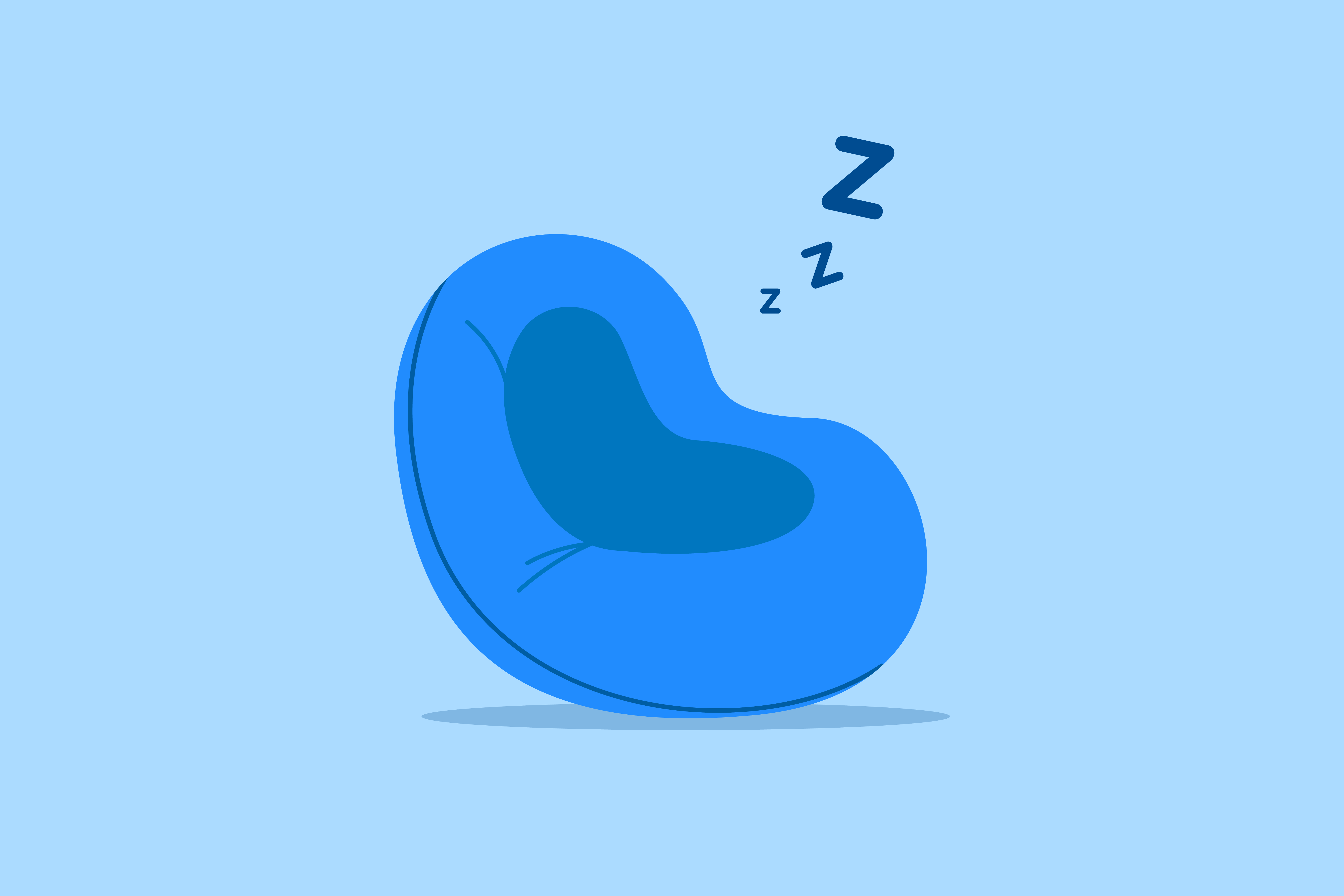Key Takeaways
- Balancing Rest and Activity: While occasional rest is essential for rejuvenation, prolonged periods of inactivity, such as staying in bed all day, can have negative consequences for both physical and mental health. Finding a balance between rest and activity is crucial for overall well-being.
- Addressing Mental Health: The desire to stay in bed all day can be a symptom of depression or emotional distress. It’s important to recognize the signs of mental health struggles and seek professional support when needed. Practicing self-compassion and breaking the cycle of guilt and shame are vital steps towards overcoming these challenges.
- Taking Action: Break the cycle of staying in bed all day by setting small, manageable goals and seeking professional help if necessary. Remember that occasional rest is normal, but it’s essential to maintain a healthy balance and engage in activities that promote overall well-being.
Have you ever had one of those days where you just want to stay in bed forever? The allure of plush pillows, cozy blankets, and uninterrupted TV marathons or a pile of books to read can be hard to resist.
But is it really healthy to give in to this temptation and spend the entire day in bed? Let’s explore whether this habit of staying in bed all day is truly as innocent as it seems.
The Impact on Physical Health
When you spend all day lying in bed without any movement, it can have a significant impact on your physical health. Movement energizes your body and gives you a sense of vitality and well-being. Without movement, your energy levels can plummet, making you feel lethargic and drained.
It’s important to understand the power of movement to energize your body. Engaging in regular physical activity helps to increase blood flow, improve muscle strength and flexibility, and boost your mood.
In contrast, staying in bed all day can lead to muscle weakness, joint stiffness, and a decline in overall physical fitness.
Balancing Rest with Activity
Rest is undoubtedly important for your body’s rejuvenation and recovery, but it’s essential to find the right balance between rest and activity. While it may be tempting to stay in bed all day and avoid any exertion, prolonged bed rest can actually have negative consequences for your physical health.
Finding ways to incorporate movement into your daily routine, even if it’s just gentle stretching or a short walk, can have a profound impact on your overall well-being. You can even do some stretches from your bed!
Not only will regular movement increase your energy levels and improve your physical fitness, but exercise can improve sleep quality and overall mental well-being.
See also Physical Health And Sleep
The Impact on Mental Health
Depression Verified Source National Library of Medicine (NIH) World’s largest medical library, making biomedical data and information more accessible. View source is a complex condition that affects millions of individuals worldwide, and its effects on mental health cannot be underestimated. Episodes of extreme depression may leave you unable to find the motivation to engage in daily activities, making you want to stay in bed all day.However, doing so can create a vicious cycle. The act of lying in bed all day can exacerbate the symptoms of depression, trapping you in a cycle of inactivity and isolation. It can lead to feelings of hopelessness, guilt, and shame, amplifying the negative impact on your mental state.
The Importance of Addressing Mental Health
Your mental health is crucial for overall well-being. Ignoring or downplaying the impact of depression on your daily life can worsen the symptoms and hinder your ability to lead a fulfilling life.
It’s essential to recognize the signs of depression and seek support to break free from the grip it has on you.
See also Mental Health and its Impact on Sleep
Breaking the Cycle
When you’re feeling depressed and just want to stay in bed all day, finding the energy to get back on track can seem impossible. It’s easy to get trapped in a cycle where you feel unable to justify even the smallest of tasks.
Start with small, manageable goals. For example, instead of thinking about of all the household chores waiting to be done, focus only on getting fully dressed and washed up.
By breaking things down into bite-sized pieces, it can become easier to find the motivation to get started.
Engaging in daily activities, no matter how small, can have a significant impact on your overall mindset.
Overcoming the Guilt and Shame
When you find yourself realizing that you are depressed and just want to stay in bed all day, it is important to address the guilt and shame that often accompanies this behavior. Instead of beating yourself up, it is crucial to understand that this is a symptom of depression and not a sign of personal failure.
Depression can make you feel trapped, unable to justify even simple tasks outside of your bed. However, it is important to realize that you are not alone in this struggle. Many individuals who experience episodes of depression can relate to the feeling of wanting to withdraw from the world and stay in bed.
One way to overcome the guilt and shame associated with staying in bed all day is to practice self-compassion. Treat yourself with kindness and understanding, just as you would a loved one going through a difficult time. Remind yourself that depression is a real illness that requires support and treatment.
Seeking Professional Support
If you find yourself suffering from extreme depression and unable to break the cycle of staying in bed all day, it may be time to consider seeking professional support. Therapists, counselors, and medical practitioners play a crucial role in addressing the underlying issues related to prolonged bed rest and can provide the guidance and assistance needed to help you overcome this challenging situation.
It’s important for you to find someone to talk to and be present with. Using the bed to re-energize is okay to face the world and be normal, but it’s crucial to acknowledge when we’re denying the need to get up and face the day.
When reaching out for help, remember that it’s completely normal to feel hesitant or unsure about opening up. Many professionals offer anonymous counseling services, allowing you to discuss your struggles without revealing your identity. This can provide a safe space for you to express your concerns and work towards finding effective solutions.
Your want to be laying down and spending hours on the internet can sometimes feel like the perfect way to unwind, but it’s important to remember to take breaks and move around for your well-being. If you’re looking for a way to relax and distract yourself during this process, consider a marathon of TV shows if you want to laugh and make noise.
When Can I Stay in Bed All Day?
While spending excessive time in bed can have negative consequences for physical and mental health, it’s important to recognize the value of occasional bed rest. Taking time to rest and recharge is essential for maintaining overall well-being, especially during times of illness, injury, or emotional stress.
When you’re sick or recovering from an injury, your body needs extra rest to heal and regain strength. Bed rest can help conserve energy, reduce pain and inflammation, and promote faster recovery. It’s important to listen to your body’s signals and allow yourself the time needed to properly recuperate.
Similarly, during periods of emotional stress or mental exhaustion, taking a day to relax in bed can provide a much-needed break from daily pressures. Engaging in calming activities like reading, meditating, or watching a favorite movie can help reduce stress levels and promote a sense of emotional well-being.
However, it’s crucial to strike a balance between rest and activity. While occasional bed rest can be restorative, prolonged inactivity can lead to negative health consequences.
Aim to incorporate gentle movement, such as stretching or short walks, into your rest days to maintain physical function and prevent complications associated with extended bed rest.
Remember, occasional bed rest is not a sign of laziness or weakness, but rather an essential component of self-care. By allowing yourself the time to rest and recharge when needed, you’ll be better equipped to face the challenges of daily life with renewed energy and resilience.
Frequently Asked Questions
How much time in bed is too much?
Spending more than 8-10 hours in bed per day, outside of the recommended 7-9 hours of sleep, can be considered excessive. Prolonged periods of inactivity can lead to various health issues, such as muscle weakness, decreased metabolism, and an increased risk of chronic diseases like obesity and cardiovascular problems.
However, the exact amount of time that is “too much” may vary depending on individual factors, such as age, health status, and overall lifestyle.
Is it bad to lay in bed all day when sick?
When you are sick, your body needs rest to recover and fight off the illness. Laying in bed can help conserve energy and promote healing. However, prolonged bed rest can also lead to complications such as muscle atrophy, reduced lung capacity, and decreased blood circulation.
It’s essential to listen to your body and find a balance between rest and gentle movement, such as short walks or stretches, to maintain physical function and prevent further health issues.
Is it OK to stay in bed all day sometimes?
Occasionally staying in bed all day, such as on a relaxing weekend or when you’re feeling under the weather, is generally acceptable. Taking a day to rest and recharge can be beneficial for both mental and physical health.
However, if staying in bed all day becomes a frequent occurrence or starts to interfere with daily responsibilities and social interactions, it may be a sign of an underlying issue, such as depression or a sleep disorder, and it’s essential to seek professional help.
What happens to your body if you lay in bed all day?
Lying in bed all day can lead to several negative effects on your body. Prolonged inactivity can cause muscle weakness and atrophy, as well as decreased bone density, increasing the risk of osteoporosis. It can also slow down your metabolism, leading to weight gain and an increased risk of obesity-related health problems.
Additionally, staying in bed for extended periods can cause poor circulation, leading to swelling in the legs and an increased risk of blood clots.
Is it unhealthy staying in bed too much?
Yes, staying in bed too much can be unhealthy for both physical and mental well-being. Excessive time in bed can lead to a range of health issues, including muscle weakness, reduced cardiovascular fitness, impaired glucose tolerance, and an increased risk of chronic diseases.
Staying in bed can also have negative effects on mental health, such as feelings of lethargy, decreased motivation, and a higher risk of depression and anxiety. Maintaining a balance between rest and activity is crucial for overall health and well-being.
Why is lying in bed so nice?
Lying in bed can be enjoyable for several reasons. First, it provides a sense of comfort and security, as the bed is often associated with relaxation and sleep. The soft, warm bedding and supportive mattress can create a cozy and inviting environment.
Additionally, lying in bed allows for physical and mental rest, which is essential for reducing stress and promoting overall well-being. The release of hormones like oxytocin and serotonin while relaxing in bed can also contribute to feelings of happiness and contentment.
Does staying in bed make you more tired?
While it may seem counterintuitive, staying in bed for prolonged periods can actually make you feel more tired. Oversleeping or spending excessive time in bed can disrupt your body’s natural sleep-wake cycle, leading to feelings of grogginess, disorientation, and fatigue. This phenomenon, known as sleep inertia, can be more pronounced when you remain in bed after waking up.
Additionally, prolonged inactivity can lead to decreased energy levels and motivation, further contributing to feelings of tiredness. Maintaining a regular sleep schedule and engaging in physical activity during the day can help promote better sleep quality and reduce daytime fatigue.
Conclusion
Remember, it’s okay to rest and take care of yourself, but it’s equally important to maintain a sense of purpose and engagement with the world around us. Whether it’s going for a walk, pursuing a hobby, or reaching out to loved ones, these small actions can have a significant impact on our overall well-being.
Allowing yourself some downtime and entertainment can be rejuvenating and provide a temporary escape from your struggles. Just ensure you maintain a healthy balance and use rest days as a form of self-care rather than a means of avoiding your challenges.
About the author
Geoff McKinnen is a writer focusing mainly on the healthcare industry and has written articles on everything from foods to help you lose weight to the connection between Alzheimer’s and sleep. Geoff’s passionate about helping readers improve their well-being to lead happier lives. Outside of work, Geoff enjoys cycling and hiking and believes that by leading a healthy lifestyle, he can help others do the same.
View all posts





